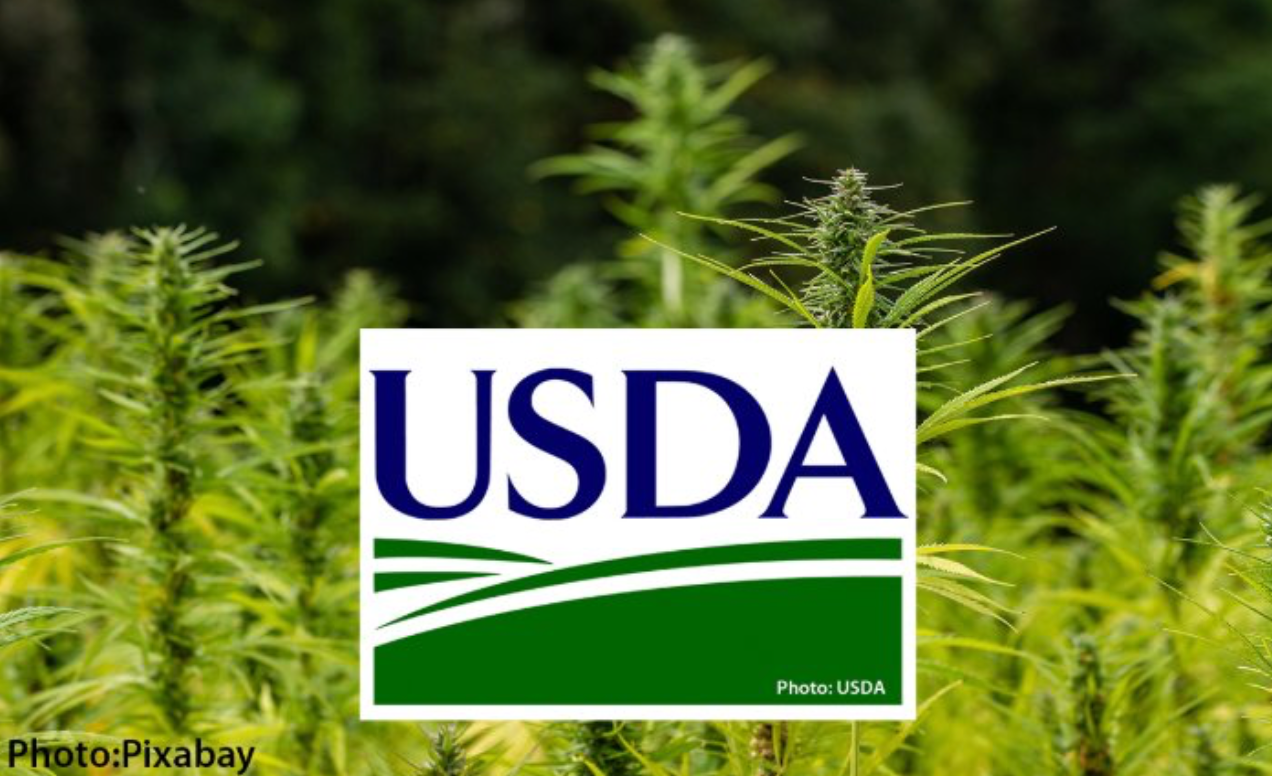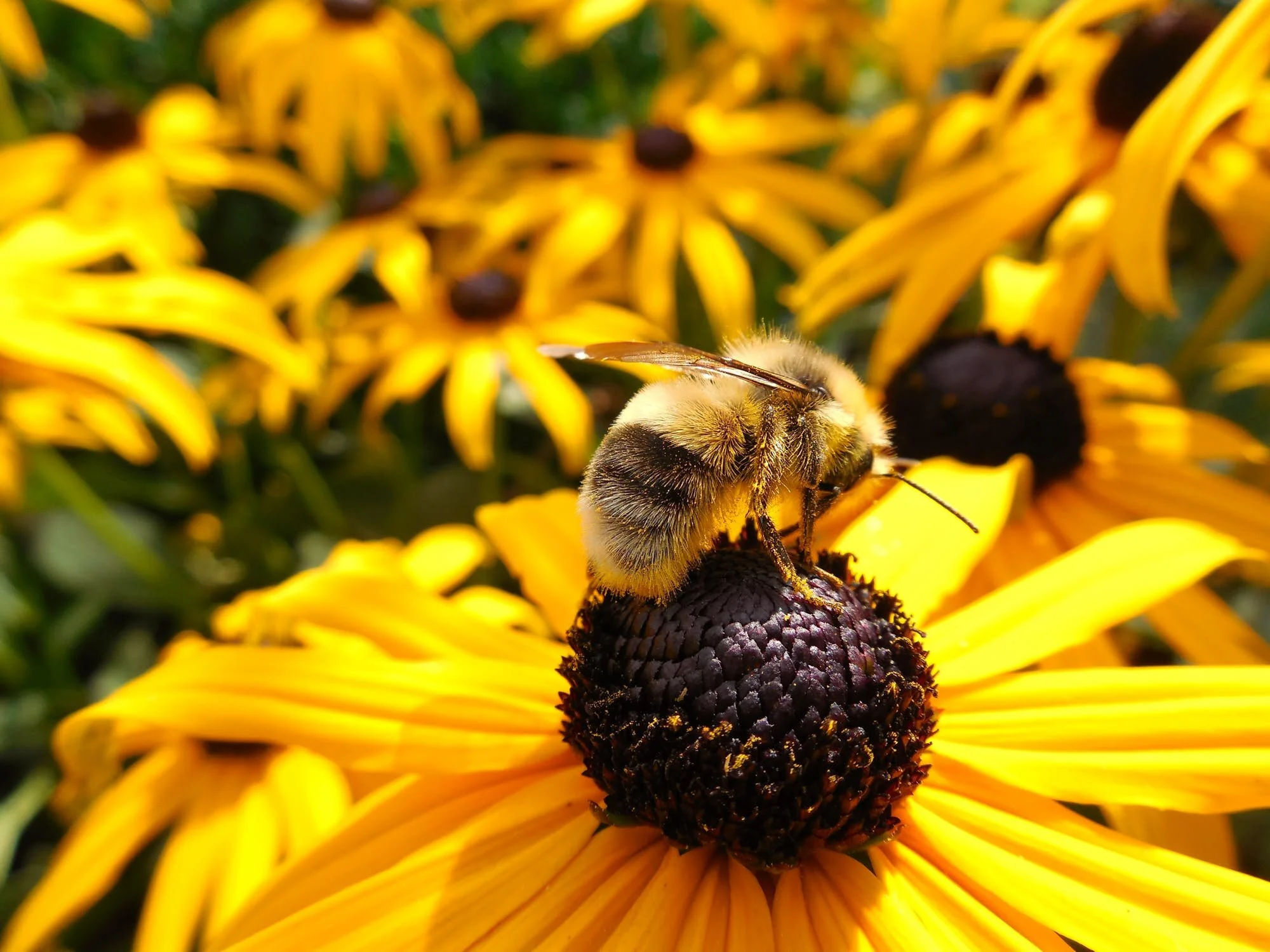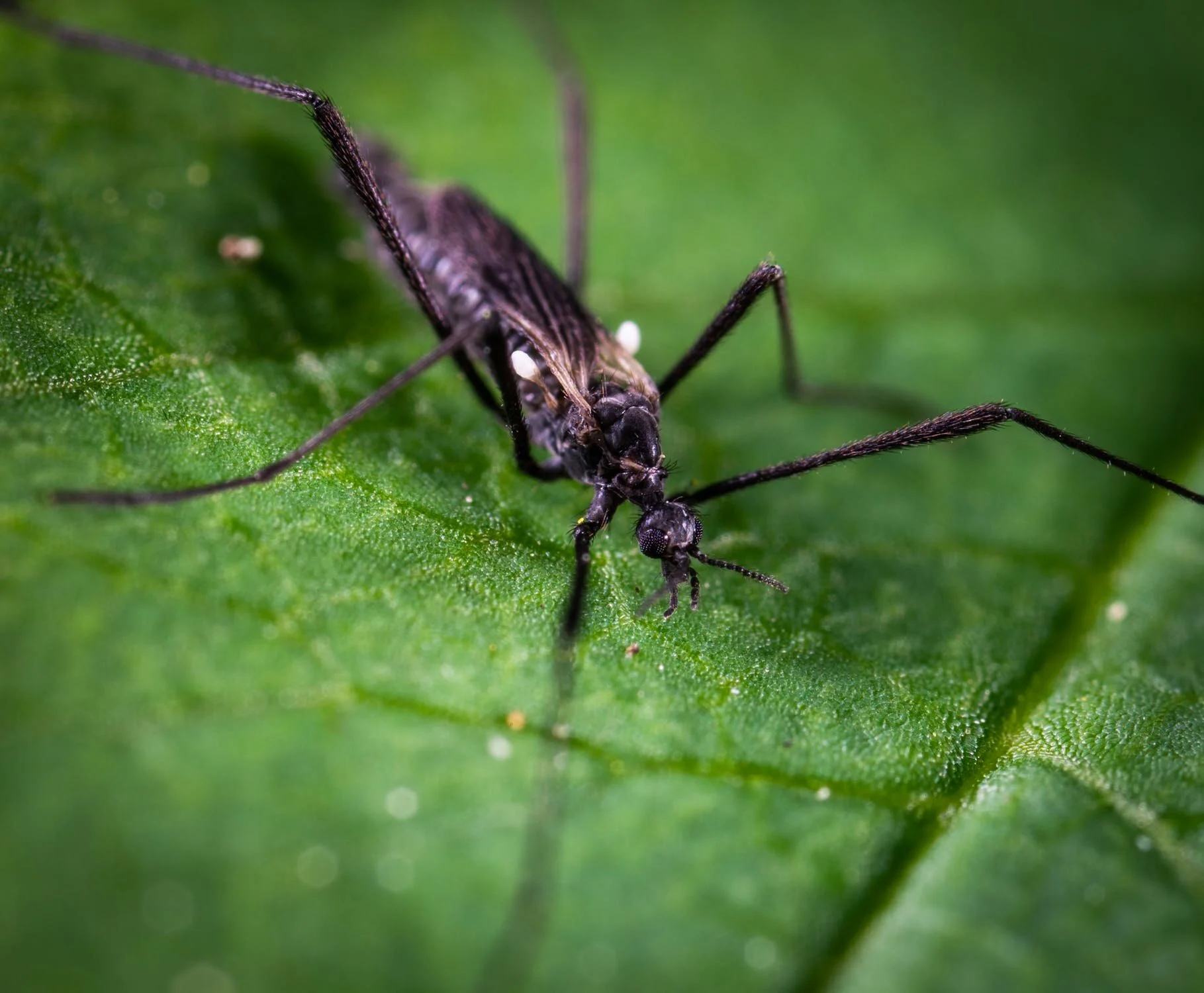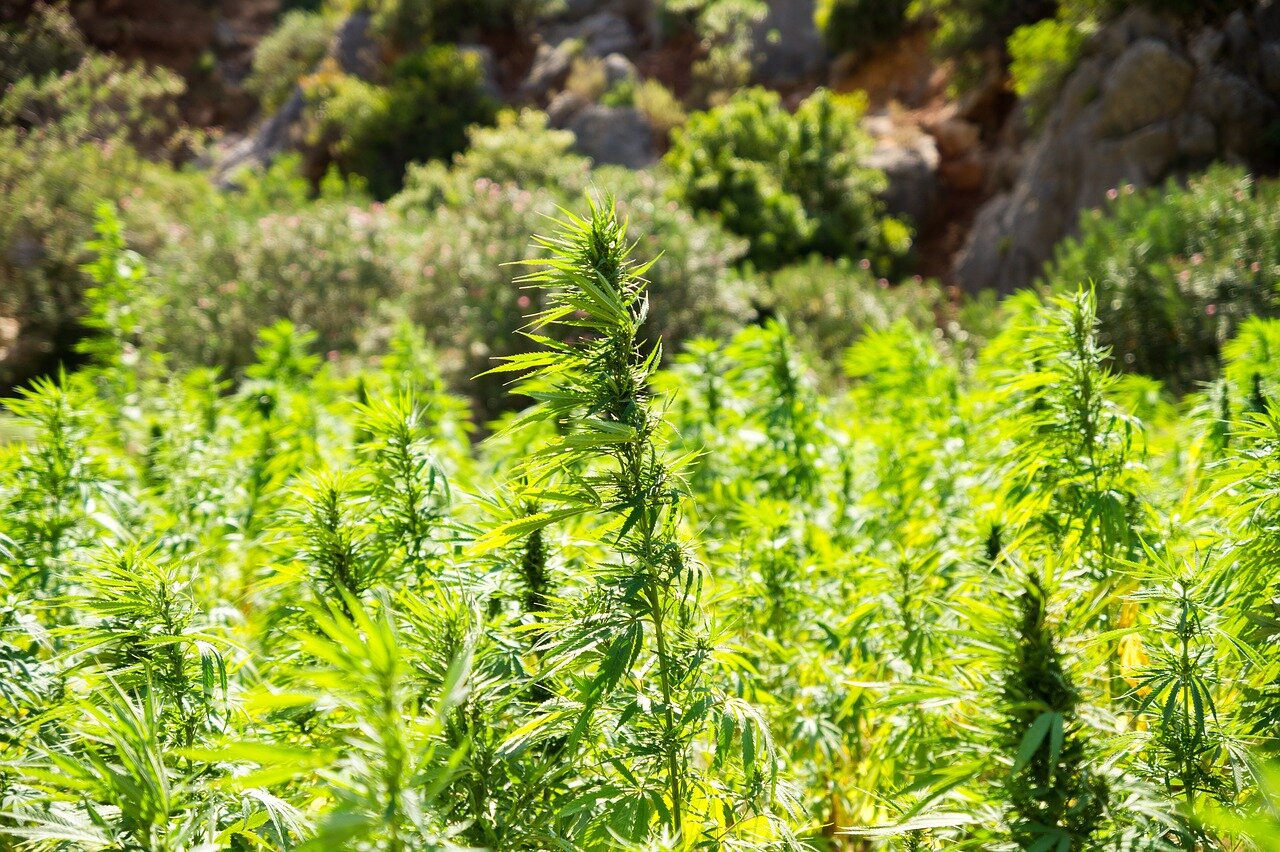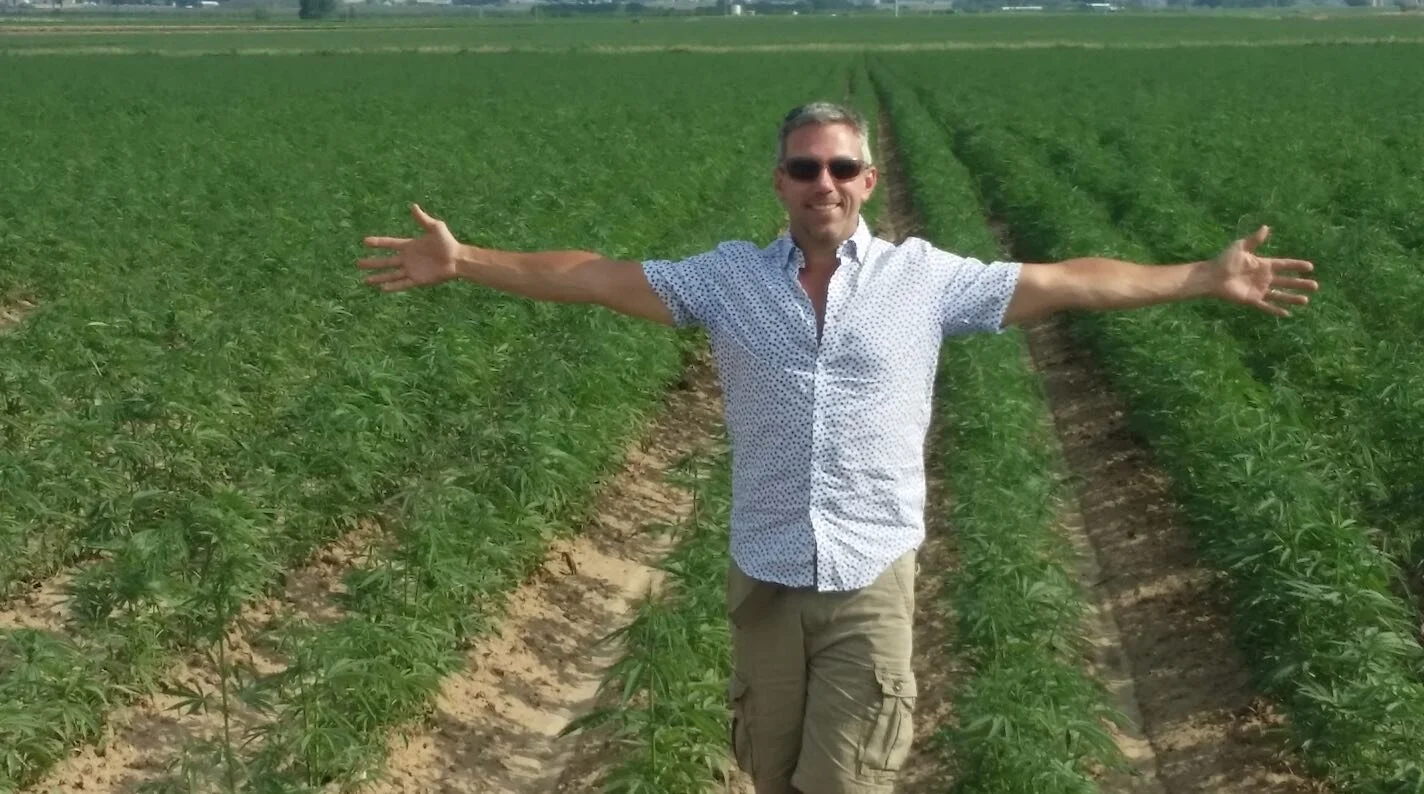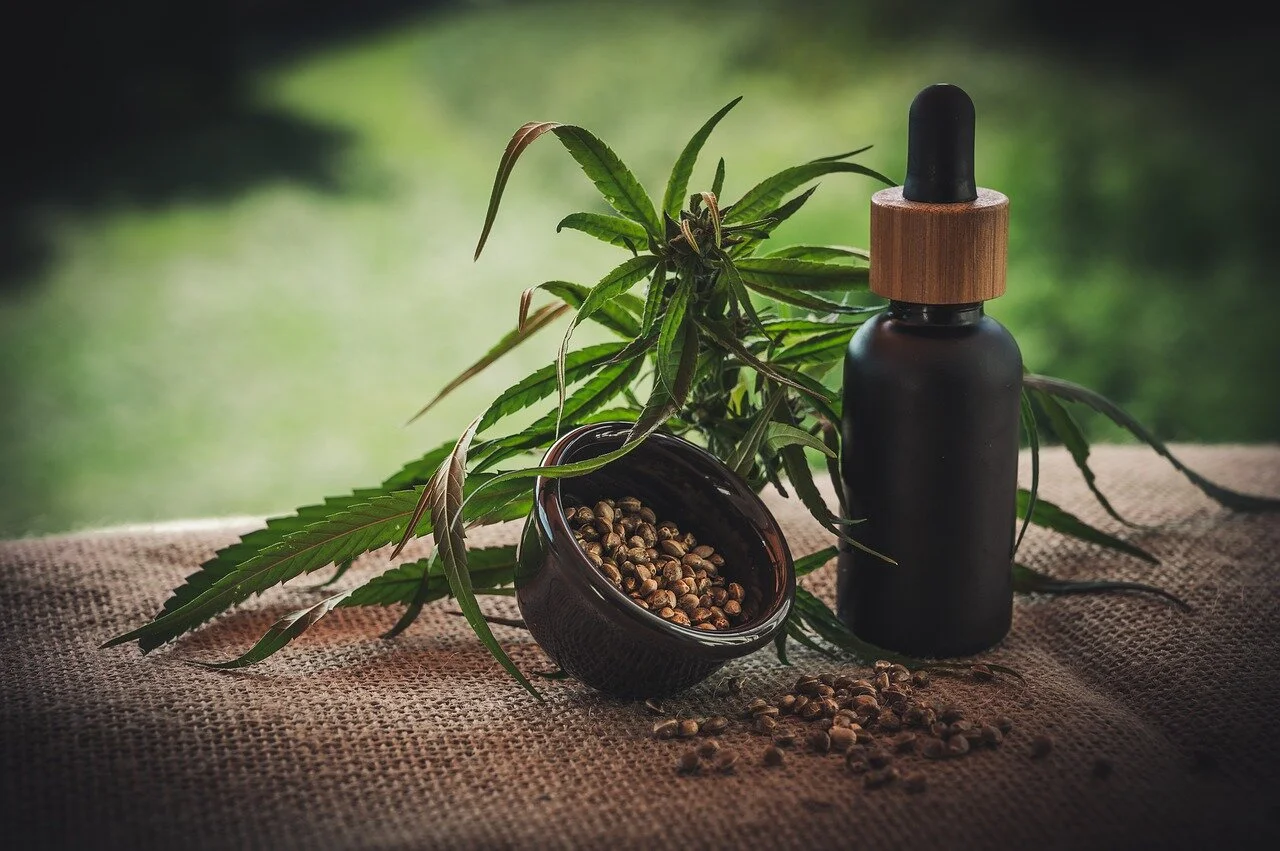Legal Experts Weigh In on USDA Interim Final Hemp Rule
Originally Appeared in Let’s Talk Hemp Newsletter, November 2019
By Steven Hoffman
As USDA seeks comments by December 30 for its new Interim Hemp Rule that lays out regulations to establish a U.S. Domestic Hemp Production Program, a major concern is the rule’s timeline for farmers getting their plants tested to make sure they don’t exceed the maximum allowed level of THC.
The challenge is the rule requires that the plants be tested within 15 days before harvest begins. The USDA says if farmers delay harvest beyond 15 days, the plants will likely have a higher THC level than the sample. If the level exceeds 0.3%, the plants will have to be disposed of under Drug Enforcement Administration regulations because the hemp would be considered a controlled substance. But the 15 days aren’t much time to submit the plants and get the results needed to know whether it’s OK to harvest the crop, Michael Bowman, a co-founder of First Crop, a public benefit company working with hemp farmers, told the Denver Post. “I would call it unworkable at this point,” Bowman said of the provision.
Meghana Shah, a co-leader at the New York City office of Eversheds Sutherland law firm, told the Denver Post, “It doesn’t address the fact that all of the sampling and testing is essentially happening around the same time for all of the producers. There’s uncertainty as to when the results will come back and how that affects a producer’s decision to actually harvest. There are a lot of sort of logistical and practical hurdles posed by the 15-day window with not a lot of answers. That is one of the areas where USDA sought comment, so I think we can expect to see it addressed during the comment period,” Shah added.
According to USDA, the draft hemp rule outlines provisions for USDA to approve plans submitted by states and Indian Tribes for the domestic production of hemp. It also establishes a federal plan for producers in states or territories of Indian Tribes that do not have their own USDA-approved plan. The program includes provisions for maintaining information on the land where hemp is produced, testing the levels of delta-9 tetrahydrocannabinol, disposing of plants not meeting necessary requirements, licensing requirements, and ensuring compliance with the requirements of the new part. The rule will become effective when it is published in the Federal Register. Comments received by December 30, 2019, will be considered prior to issuance of a final rule.
To help producers and businesses make sense of USDA’s draft Hemp Rule, a number of law firms and legal experts specializing in industrial hemp have published opinions, analyses and client alerts about the impact and key takeaways of the draft rule. Read more here for a sampler of recent legal analyses covering USDA’s new interim hemp rules.
To date, USDA has received over 800 comments on the draft rule to establish a domestic hemp program. Read the USDA Interim Final Rule here. To submit a comment, visit here. Comments received by Dec. 30, 2019 will be considered prior to issuance of a final rule.
Learn more about the state of the industrial hemp market at the upcoming Winter Hemp Summit, Jan. 16, 2020, in Boulder, CO, and the 7th Annual NoCo Hemp Expo in Denver, March 26-28, 2020.
Aldi, Tesco Seek to Reduce Single-Use Plastic; Aldi Announces Bee Protection Plan
Originally Appeared in Presence Marketing News, December 2019
By Steven Hoffman
In a bid to help protect bees and other pollinators, leading grocer Aldi recently announced a plan to minimize its use of pesticides in the U.S. Aldi’s new “Pollinator Policy” is encouraging its suppliers of fruits, vegetables, live plants and flowers to phase out the use of chlorpyrifos and neonicotinoid pesticides – among the most toxic to bees. In addition, the policy further encourages suppliers to limit the use of non-essential pesticides and to use integrated pest management strategies that support the use of less toxic alternatives.
Aldi further stated that it supports and encourages the growth of the organic industry, which it said in turn supports pollinator health. The announcement follows a multi-year campaign led by Friends of the Earth and others. A recent peer-reviewed study co-authored by Friends of the Earth shows that U.S. agriculture has become 48 times more toxic to bees and other insects since the introduction of neonicotinoid insecticides 25 years ago.
In related news, leading U.K. grocery chain Tesco in November announced plans to remove 1 billion pieces of plastic from its own privately branded products in its U.K. stores by 2021. The grocer said that it will remove plastic trays used for ready meals, replaced small plastic bags used for produce and baked goods with paper bags, stop including straws and sporks from drink and snack cartons, and remove secondary lids on items such as yogurt and cereals. In addition, Tesco said it will remove 200 million pieces of plastic currently used for greeting cards and clothing. The retailer says it has adopted a strategy of “remove, reduce, reuse, recycle.” In practice, Tesco says this means it will “remove non-recyclable and excess packaging from its business,” CNBC reported.
Aldi, in turn, announced earlier this year that it plans to convert 100% of its packaging to reusable, recyclable or compostable materials by 2025. The grocer also pledged to reduce packaging for Aldi-exclusive products by at least 15% by 2020, reported Grocery Dive. In November, Aldi introduced a pilot program in more than 250 of its U.K. stores to make available reusable bags for fruits and vegetables. “We are committed to cutting the amount of plastic that Aldi and our customers use, particularly excess or single-use plastic like produce bags," Aldi’s managing director of corporate responsibility Fritz Walleczek told Fresh Fruit Portal.
Earlier this year, Greenpeace ranked U.S. grocers on their efforts to reduce plastic waste. Aldi, Kroger, Albertson’s, Trader Joe’s, Sprouts Farmers Markets, Wegman’s, Whole Foods and others rated highly. However, reported Supermarket News, Greenpeace noted that U.S. supermarkets have a long way to go to effectively address plastic pollution, in particular single-use plastics.
Dean Foods Bankruptcy Impacts Natural, Organic Brands
Originally Appeared in Presence Marketing News, December 2019
By Steven Hoffman
Uncle Matt’s Organic Inc., a leading organic juice brand, on November 12 filed for Chapter 11 bankruptcy, along with dozens of other businesses owned by Dean Foods Company, the largest milk processor in the U.S.
Dallas-based Dean Foods (NYSE: DF) said the bankruptcy filings by it and all its subsidiaries in U.S. Bankruptcy Court for the Southern District of Texas comes as the company deals with losing its biggest customer, Walmart, which decided to build its own milk plant, and the impact of declining demand for milk as American consumers opt for plant-based beverage alternatives, reported Sustainable Business News, a subscriber-based organic and sustainable food industry online news site.
Founded in 1925, Dean Foods’ brand portfolio includes more than 50 national and regional dairy brands, including Country Fresh, DairyPure, Friendly’s, Garelick Farms, Land O’Lakes, Meadow Gold, Oak Farms Dairy, Swiss Premium, TruMoo, Tuscan Dairy Farms, and others. Among its natural and organic brand holdings, Dean Foods also owns juice maker Uncle Matt’s Organic, based in Clermont, FL, and is a majority stakeholder in flax-based plant beverage brand Good Karma, based in Boulder, CO.
The bankruptcy filing’s effect on those companies is uncertain at this point. Representatives from Uncle Matt’s have not issued comment, to date. In an email to BevNET, Good Karma CEO Doug Radi said Dean Foods’ bankruptcy has “no impact” on the brand, which remains an independent company with a separate leadership team and board of directors. “We remain dedicated to our mission of making dairy alternative food and beverage products that deliver a plant-based mighty bundle of nutrition,” he told BevNET.
In a statement to BevNET, CROPP Cooperative — which includes Organic Valley, Organic Prairie and Mighty Organic — said that, while it is “disheartened” by the bankruptcy, the joint venture it established in March 2017 with Dean Foods, called Organic Valley Fresh, a direct to store distribution system for Organic Valley products, is outside of the Dean Foods filing, meaning “it has no impact on the venture’s customers or vendors. Organic Valley remains strong and our business overall has been bolstered by new innovations we’ve brought to market, including Ultra, the first organic ultra-filtered milk,” the statement read.
Save the Date: Tickets on Sale Now for 2nd Annual Colorado Winter Hemp Summit, January 16, 2020, Boulder, CO
Hemp community, leaders, and advocates invited to day-long, town hall-style summit to discuss and recap hemp’s growth in 2019 and share 2020 industry and market projections
2nd Annual Winter Hemp Summit
Thursday, January 16, 2020, 10am-6pm
Boulder Jewish Community Center, 6007 Oreg Ave., Boulder, CO 80303 (map)
Produced by the Colorado Hemp Company, producer of the 7th Annual NoCo Hemp Expo
Boulder, CO (November 6, 2019) – The Colorado Hemp Company is pleased to announce the date and location for the 2nd Annual Colorado Winter Hemp Summit, taking place at the Boulder Jewish Community Center, located at 6007 Oreg Avenue in Boulder, CO, on Thursday, Jan. 16, 2020, from 10 am – 6 pm. Organizers and industry experts will discuss the state of the hemp industry in a town-hall-style meeting and provide a catered luncheon for attendees.
"We're looking forward to hosting the 2nd Annual Winter Hemp Summit in Boulder which is widely known as an epicenter of the natural and organic products industries, along with the emerging hemp industry. The companies and entrepreneurs who are based there are known to be at the forefront of innovation,” said Morris Beegle, Founder of the Colorado Hemp Company and Producer of the NoCo Hemp Expo, Southern Hemp Expo and the upcoming Colorado Winter Hemp Summit. “The entire community is invited to participate in the Winter Hemp Summit’s town-hall-style format and hear about the exciting market opportunities on the horizon.”
The Winter Hemp Summit is the run-up event to the 7th Annual NoCo Hemp Expo (NoCo2020), scheduled for March 26-28, 2020, at the National Western Complex in Denver. Produced by the CO Hemp Company, as well, NoCo2020 – the world’s largest gathering of hemp industry professionals under one roof – is expected to draw nearly 20,000 visitors. Setting the stage for this highly anticipated trade show and conference, the Winter Hemp Summit kicks off the new year with the latest market research, forecasts, policy updates and news related to the 2020 growing and production season.
“Colorado Hemp Company, through its events including the Winter Hemp Summit and the NoCo Hemp Expo, focuses on the entire hemp industry and supply chain, not just a narrow ingredient focus, i.e., CBD. More real business gets done at these events because of the quality of the participants, including leaders and veterans in the trade,” said Robert Hoban, President and Founder of the Denver-based Hoban Law Group, one of the world’s leading legal firms serving the hemp/cannabis industry. “I support their mission of making the world a better place through the use of hemp,” Hoban added.
The 2nd Annual Winter Hemp Summit Initial Agenda
10am – Doors Open
11am-1pm – Let’s Talk Hemp, Session 1: 2019 Year-in-Review, Farm Bill Updates, CHAMP and Key Policy Insights
1pm-2pm – Networking Lunch
2pm-4pm – Let's Talk Hemp, Session 2: 2020-2021 Forecast, Policy, Regulations, Compliance, Market Opportunities, and Growth
4 pm-6pm – Networking Hempy-Happy Hour
Ticket and Sponsorship Information
Tickets are on sale now for the 2nd Annual Winter Hemp Summit for $99.00 each. To purchase tickets or for more information, visit https://winterhempsummit.com/.
If you're interested in becoming an industry support partner of the Winter Hemp Expo, please visit https://winterhempsummit.com/.
About Colorado Hemp Company
The Colorado Hemp Company, producer of the 2nd Annual Winter Hemp Summit and the 7th Annual NoCo Hemp Expo (NoCo7), is a leading organization for the advancement and advocacy of hemp farming, processing, production, innovation, education, and legalization in the USA. The entire team is committed to researching and developing alternatives so that hemp can once again thrive, prosper, and help individuals and communities throughout America and around the globe.
Contact
Steven Hoffman, Compass Natural, 303.807.1042, steve@compassnaturalmarketing.com
Morris Beegle, Colorado Hemp Company, 970.541.0448, info@nocohempexpo.com
# # #
Gene editing, celery powder and organic enforcement: A roundup from the NOSB’s fall meeting
Originally Appeared in New Hope Network’s Idea Xchange, November 2019
By Steven Hoffman
The National Organic Standards Board recently addressed some of the industry’s critical issues: protecting small-scale organic dairy farmers; strengthening fraud enforcement; and gene editing.
From protecting small-scale organic dairy farmers and strengthening enforcement over organic fraud, to expressing concern over the use of celery powder in processed organic meats and the threat of gene editing in organic production, the National Organic Standards Board addressed several critical issues surrounding the integrity of the organic seal during its recent fall meeting.
The board voted to prioritize four areas of organic research: ecosystem services and biodiversity of organic systems; managing cover crops for on-farm fertility; identifying barriers and developing protocols for organic nurseries; and assessing the genetic integrity of organic crops at risk.
Approximately 150 advocates, producers, farmers, manufacturers and others attended the fall meeting of the National Organic Standards Board Oct. 23-25 in Pittsburgh, Pennsylvania, according to a USDA spokeswoman. During the 12 hours of public comment, about 115 people spoke to the board members about their concerns, she said.
“Farmers are some of the most innovative people in the world when we need to be,” said Jeff Dean, an organic farmer and member of the Ohio Ecological Food and Farm Association. “Please keep our standards strong and give our proud, innovative farmers the chance to provide organic products to the consumers who want them,” he appealed to the NOSB board members.
This overview of the meeting was collected from published accounts and Twitter feeds from Organic Trade Association, Cornucopia Institute, Organic Insider, Ohio Ecological Food and Farm Foundation and other organizations attending the event.
Strengthening organic enforcement
Preventing fraud in organic trade is critical to maintaining product integrity and consumer confidence. Jennifer Tucker, deputy administrator of the USDA’s National Organic Program (NOP), presented a proposed NOP Enforcement and Oversight Rule that will be issued later this year for public comment, and improvements already underway to strengthen enforcement.
Those improvements include additional training resources focused on oversight of complex domestic operations; traceback and mass balance audits; and research into risk-based certification models for accreditation and certifier oversight. The National Organic program accredits and oversees more than 80 independent certification organizations, examining and verifying how these organizations document, certify and inspect more than 37,000 organic farms and businesses around the world.
In the realm of imports, farm-level yield analysis has been a valuable tool in taking enforcement action, Tucker said. In the Black Sea region, the NOP examined records from organic grain and oilseed producers, data from regional producers and weather models and found many organic farms reported yields far higher than regional averages. As a result, more than 275 operations in that area have lost their organic certification, according to the agency.
The NOP has continued country commodity studies and ship surveillance, increased the number of unannounced visits it makes, Tucker said. Follow-up investigations have led to certifiers and operators adverse actions, she said.
Tucker shared that new training on dairy compliance is available for certifiers and inspectors at the online Organic Integrity Learning Center, which continually offers new courses since its launch in May.
Also, the comment period for the Origin of Livestock rule—a proposal to change how farmers may transition their dairy animals to organic—has been reopened. Written comments must be received or postmarked on or before Dec. 2.
What’s the deal with celery powder?
To the relief of organic meat producers but to the chagrin of those concerned about the potential health hazards of nitrates and nitrites in processed foods, the NOSB board voted 11-1, with one abstention, to allow the continued use of celery powder in organic food production. Dave Mortensen, chair of the Department of Agriculture, Nutrition and Food Systems at the University of New Hampshire, voted against keeping celery powder on the list, and Emily Oakley, founding partner of Three Springs Farm in Oaks, Oklahoma, abstained from voting.
Used in the curing of processed meats such as hot dogs, sausages, bacon and deli meats, celery powder is a key processing ingredient in the organic meat industry, as it is the only allowed alternative to synthetic nitrates and nitrites used in conventional meat production. At issue, reports New Food Economy, is the fact that a significant amount of processing goes into producing celery powder for use in cured meats, and that the celery itself does not have to be organic, which brings with it the concomitant use of synthetic pesticides and fertilizers. Non-organic celery is ranked 11th on the Environmental Working Group’s Dirty Dozen list of vegetables that, when grown conventionally, absorb the highest levels of pesticides.
Additionally, whereas the amount of synthetic nitrates is limited in conventionally processed meats, unlimited quantities of celery powder are allowed in meats that are labeled “uncured” or “nitrate free,” New Food Economy reports, which has been cause for concern among some health advocates.
“There is little evidence that preserving meats using celery … is any healthier than other added nitrites,” Dariush Mozaffarian, dean of the Friedman School of Nutrition Science & Policy at Tufts University, told New Food Economy. “Until industry provides strong evidence that nitrites in celery juice have different biologic effects than nitrites from other sources, it’s very misleading to label these [products] as ‘nitrite free’ or to consider such processed meats as being healthier.”
The Organic Trade Association supported continuing the allowance of non-organic celery powder at the Fall NOSB 2019 Meeting so as not to disrupt the organic meat industry. However, the trade association, in collaboration with the Organic Center, submitted a $2 million proposal to the USDA and convened a working group to find organic sources of celery powder and research alternatives to celery powder in organic meat processing. NOSB members expressed hope that when the ingredient comes up for review again in five years, their successors may be presented with more alternatives.
Gene editing in organic
Gene editing, which the organic industry considers GMO technology, remains a prohibited method in organic agriculture, Tucker said, adding that gene editing is not on USDA’s regulatory agenda for organics. However, according to Informa’s IEG Policy News, Tucker also noted that USDA does encourage “continued robust dialogue about the role of new technologies and innovations in organic agriculture.”
That idea alarmed a number of organic advocates concerned that USDA might try to influence the NOSB’s position on gene editing. In response, Mortensen criticized USDA NOP officials. “It’s clear from the many comments that we received that organic consumers and organic farmers do not want genetically modified practices as any part of our production system, end of story,” he said. “And I don’t think we should be encouraging or suggesting that we need robust dialogue. I think this is just one example of where we get ourselves into trouble and compromise the policies that we were charged to do.”
Consistent with its gene-editing position, NOSB voted unanimously to exclude induced mutagenesis via in vitro nucleic acid techniques as a method in organic production, reported the Organic Seed Alliance in its Twitter feed. According to the organic advocacy organization IFOAM Organics International, such mutagenesis technology—as well as CRISPR, grafting onto transgene root stock and other related practices—“are genetic engineering techniques that are not compatible with organic farming and that must not be used in organic breeding or organic production.”
Other board activity
On Oct. 24, the USDA published a final rule in the Federal Register to amend the National List of Allowed and Prohibited Substances based on public input and the April 2018 recommendations from the National Organic Standards Board. This final rule allows elemental sulfur to be used as a slug or snail bait to reduce crop losses; allows polyoxin D zinc salt for plant disease control; and reclassifies magnesium chloride from a synthetic to a non-synthetic substance. The final rule is effective Nov. 22.
During the fall meeting, new NOSB officers, who serve 1-year terms, were elected:
Chair—Steve Ela (Producer), Ela Family Farms, Hotchkiss, Colorado.
Vice chair—Scott Rice (Certifier), Washington State Department of Agriculture, Olympia, Washington.
Secretary—Jessie Buie (Producer), Ole Brook Organics, Jackson, Mississippi.
In addition, outgoing NOSB members Harriet Behar, Ashley Swaffer, Tom Chapman and Lisa de Lima were recognized for their public service.
The next NOSB meeting is scheduled for April 29-May 1 in Crystal City, Virginia.
Yale University Study: GMO Mosquitoes Bite Back
Photo: Pexels
Originally Appeared in Presence Marketing News, October 2019
By Steven Hoffman
What happens when a U.K.-based biotech company, Oxitec Ltd., releases tens of millions of mosquitoes in Brazil that were genetically engineered to produce sterile offspring with the intent to combat the spread of diseases such as Zika and malaria? “The idea would be that when these males mated with females, the offspring would die. And therefore, the overall population size of the mosquitoes would decline,” said Yale University professor Jeffrey Powell, who led a research study to assess the results of the experimental release of the GMO mosquitoes into the Brazilian rainforest. “What we found was unexpected. Unpredicted,” he said. According to the study published in September 2019 in Nature, the researchers found hybrids of the GMO mosquitoes and the native mosquitoes – signifying that some of the offspring weren’t sterile, reported WSHU Public Radio. “Evidently, rare viable hybrid offspring between the release strain and the Jacobina population (native mosquito species in Jacobina, Bahia, Brazil) are sufficiently robust to be able to reproduce in nature,” the study’s authors concluded. “We don’t know what the effect of having this hybrid population is. These could be stronger mosquitoes, harder to control,” Powel said. Editorial note: Why do these scientists sound surprised? Anyone in the organic and non-GMO movement could have told you what would happen. In fact, we did. Can you say “Unintended consequences?”
New Organic Bed & Bath Brand Seeks to Democratize Organic Via the QVC Network
Photo: Pexels
Originally Appeared in Presence Marketing News, October 2019
By Steven Hoffman
“ECOlifestyle” entrepreneur and author Marci Zaroff recently launched a new certified organic, luxury lifestyle brand, Farm to Home, on the popular QVC shopping television network. Consumers are demanding more transparency from the brands they buy and support—including food, beauty, clothing and home textiles, Zaroff said. With $8.8 billion in revenue in 2017, QVC is a powerhouse, reaching 370 million homes in the U.S., U.K., Germany, Austria, Japan, Italy, France, and through a joint venture in China. From fiber to finished product, Farm to Home adheres to the highest level of organic certification from the notable Global Organic Textile Standard (GOTS). According to the Organic Trade Association, the U.S. organic industry hit a record of $52.5 billion in sales overall in 2018, with organic non-food product sales up 10.6% to $4.6 billion in revenue. Industry data also shows that fiber accounted for 40% of the organic non-food market with sales of $1.8 billion in 2018, up from $1.6 billion in 2017. “We believe everyone should have the opportunity to #dwellorganically, which is why our mission is to democratize organic home goods, offering authenticity, accessibility and affordability," said Zaroff, Founder and CEO of Farm to Home. "I am overjoyed with the QVC partnership, as it provides an easy way for consumers to purchase a responsibly luxurious organic bed and bath collection at great prices. “Organic cotton textiles are not only key to promoting cleaner and healthier living, but are essential in protecting soil health, supporting climate change resilience and improving water retention—all while ensuring farmer and worker welfare," Zaroff added.
NPA Criticizes Senate for Excluding Funding for CBD Health Safety Evaluation
Photo: Pixabay
Originally Appeared in Presence Marketing News, October 2019
By Steven Hoffman
The Natural Products Association (NPA), based in Washington, DC, reported that the U.S. Senate Agriculture Appropriations Committee failed to include legislation passed earlier this summer in the House of Representatives that would have appropriated $100,000 for the FDA to perform a health hazard evaluation on CBD. The health hazard evaluation would have determined and set a safe use level for the consumption of CBD. This process has precedent, allowing FDA to exercise enforcement discretion on natural products that contain levels of an approved drug ingredient, most notably red yeast rice, reported Nutritional Outlook. The Senate agriculture committee only included language that instructed FDA to report back to them in 90 days, but otherwise, no meaningful progress was made in regulating CBD products, NPA said. “What we saw today was the U.S. Senate Agriculture Committee fail to include any meaningful legislative language that would force the FDA to do its job when it comes to CBD. Sadly, this approach will lead to nothing but problems. We are seeing that play out with the vaping crisis and we are desperately hoping to avoid that with CBD,” said Daniel Fabricant, PhD, president and CEO of NPA, in a statement. “This should have been an easy choice for the committee, they should have taken their lead from the U.S. House of Representatives where Congressman (Jerry) McNerney had already had an amendment pass that would actually protect American consumers. However, the fight is not over. We are continuing our work to ensure that the one in seven Americans that use a CBD product everyday have the ability to believe that the FDA is doing its job, and not taking the path of least resistance. We encourage everyone to tell their Congressman and Senators to set a safe level of daily consumption for CBD,” Fabricant said.
Protector to Provider: Colorado Hemp Honey Creates Buzz by Donating $10,000 to Boost Agriculture Programs for Veterans
In Addition to Helping Denver Non-Profit, Former U.S. Marine and Colorado Hemp Honey Founder/CEO Nick French also Appointed to Colorado Hemp Advancement and Management Plan Committee known as "CHAMP"
Parker, CO (October 15, 2019) – Frangiosa Farms, producer of popular Colorado Hemp Honey, is pleased to announce its commitment to help veterans nationwide transition from “Protector to Provider,” through the Denver-based non-profit Veterans to Farmers program. The mission of Veterans to Farmers trains vets and assists them in providing essential skills in agriculture, tech and business operations to help them lead a more fulfilling and sustainable lifestyle.
Nick French, a former U.S. Marine and Founder and CEO of award-winning Colorado Hemp Honey, has been involved with Veterans to Farmers since 2013. French relates to the non-profit’s mission in many ways both as a veteran and farmer. “I feel a solid connection to my brother and sister veterans, which is why I am donating 10 cents from every jar of Colorado Hemp Honey that we sell to the Veterans to Farmers program. We want to make a difference and help veterans earn college credits and valuable skills that lead to jobs,” says French.
Nick French, Founder & CEO, Colorado Hemp Honey
A farmer by trade, French grew up on a small farm in Northwestern Ohio where the primary crops were beans, corn, and wheat. After spending five years in the Marine Corps and many years overseas, French returned to the family farm nearly 12 years ago where he learned to become a beekeeper. Today, Nick manages upwards of 150 bee colonies on several rural farms south of Denver.
Earlier this fall, Frangiosa Farms donated $10,000 to Veterans to Farmers during the charity’s annual fundraiser held at the Denver Botanic Gardens at Chatfield Farms. “There are hundreds of veterans waiting to join our program. Thanks to Frangiosa Farms and Colorado Hemp Honey's support, their donation will go far and will train veterans in food and agriculture," said Rich Murphy, Executive Director of Veterans to Farmers. “We are grateful for Nick's dedication and commitment to our mission.”
“CHAMP” Appointee
Hemp is also something that Colorado Hemp Honey’s Founder and CEO Nick French is passionate about. Recently, he was selected to serve as a stakeholder with the Colorado Department of Agriculture’s initiative known as the Colorado Hemp Advancement and Management Plan or "CHAMP." With the passage in 2012 of marijuana legalization in Colorado, the hemp industry also got an early start in the state, and Colorado is now considered one of the country's epicenters of hemp agriculture, manufacturing, and production. To further that leadership position, CHAMP was created by Governor Polis for "Colorado to remain an innovative force in the promotion of this high-value agricultural commodity," according to the CHAMP website.
“It’s an honor to be appointed to CHAMP and serve as a resource on this committee. It is vital to expand hemp farming in our state and across the country," said Nick French. “CHAMP is a collaborative effort between farmers, commerce and the government. I am excited to lend my expertise as a hemp brand, entrepreneur – and veteran."
About Veterans to Farmers
Founded in 2009, Veterans to Farmers trains veterans to excel in agricultural systems, technologies, and business operations for a fulfilling and sustainable lifestyle. The Veterans to Farmers program provides a way for vets to recover, to learn, and to move forward by becoming providers, contributing to the solution of our food-insecure nation. Veterans to Farmers assist veterans in assimilating effectively, productively, and permanently into private citizenry through agricultural training and education. For more information or to donate, visit: www.veteranstofarmers.org
About Frangiosa Farms and Colorado Hemp Honey
Frangiosa Farms was founded in 2008 with the goal of creating local artisan neighborhood honey using organic practices. In 2015, Nick and Ali French created Colorado Hemp Honey using raw honey from the farm; full-spectrum, plant-based, non-isolate hemp extract; and organic essential oils. Frangiosa Farms helps save bees and veterans with its community outreach efforts, supports local farmers, and recently began growing industrial hemp. Colorado Hemp Honey has been featured in Food & Wine, Westword, and CNN, among others. Colorado Hemp Honey products are available in natural food pet and hemp/CBD retailers nationwide. Visit www.coloradohemphoney.com.
Media inquiries: Steve Hoffman, steve@compassnaturalmarketing.com, 303.807.1042
Wholesale inquiries: Dave Podesta, dave@frangiosafarms.com, 415.310.1659
# # #
40% of Adults Have Tried CBD in States Where it Is Legal
Photo: Pixabay
Originally Appeared in Presence Marketing News, October 2019
By Steven Hoffman
Cannabidiol “isn’t just for a select few people,” claims market research firm The NPD Group. Nearly 20% of adults have tried CBD in states where it is legal, and almost half of them have used it recently, reported Darren Seifer, Executive Director, Industry Analyst for The NPD Group. This figure is expected to increase rapidly as CBD is appearing in snack foods and beverages, consumers are getting more comfortable with the idea and just as many people plan to try it as are currently using it, he says. “There is definitely interest on the part of consumers in CBD but its future in the mass market is dependent on legalization, which is now a patchwork of state legislation,” says Seifer. “Even with the complexities of legalization, consumer acceptance and adoption of CBD as a food and medicine is an important topic for food manufacturers to keep on their radar screens.” The Port Washington, NY-based market research firm said among those consumers using CBD, 40% of them are “seeking to better themselves with food and beverage choices…a stat that reflects the increasing use of food as medicine by consumers.”

